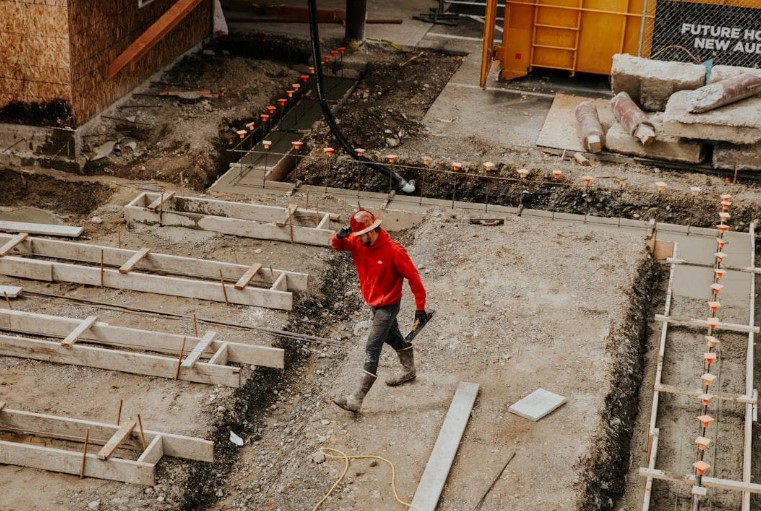As a homeowner, there are numerous responsibilities that come with maintaining and taking care of your property, including but not limited to your roof. With different types of roofing materials and techniques available, choosing the right one for your home might not be the easiest of tasks.
Once you understand the basics of quality roofing, you can make informed decisions that will benefit your home in the long run. Here are 6 essential things every homeowner should know about quality roofing.
Installation
A well-installed roof offers protection against weather elements while significantly reducing the risk of costly repairs due to water damage or structural issues. It's crucial to hire a reputable and experienced roofing contractor like Monarch Roofing who adheres to local building codes and uses high-quality materials. They should conduct a thorough assessment of your property to determine the best roofing solution that suits your home's architectural style and climate needs.
Incorrect installation can cause a host of problems, including leaks, inadequate ventilation, and even premature failure of the roofing system. As a result, choose a licensed and insured roofing contractor who possesses the necessary skills and expertise to install your roof correctly the first time.
Roofing Material Choice
Homeowners should be aware of the different types of roofing materials available and their benefits. Each material has unique advantages and disadvantages, from traditional asphalt shingles to more modern options like metal or tile roofs. While asphalt shingles are affordable and easy to install, they have a shorter lifespan compared to metal or tile roofs.
Consider factors such as durability, energy efficiency, and maintenance requirements when selecting a roofing material. Consulting with a professional roofing contractor can help you make an informed decision based on your budget and needs.
Maintenance
A proactive maintenance routine involves regularly inspecting your roof for signs of damage, such as missing shingles, cracks, or leaks, and addressing these issues promptly. It's advisable to have a professional roofer conduct a comprehensive inspection at least once a year. Beyond inspections, you need to keep your gutters clean and free of debris as clogged gutters can lead to water pooling and damage the roof structure.
Even trimming any overhanging tree branches can prevent physical damage and reduce the accumulation of foliage on the roof. When you invest time and effort into maintaining your roof, you will safeguard your home from potential water damage and insulate it effectively.
Energy Efficiency
Some materials, such as metal and asphalt shingles with reflective coatings, can lower your energy bills by reflecting sunlight and reducing heat absorption. These energy-efficient options can keep your home cooler in the summer and reduce the need for air conditioning, which can save you money in the long run.
By reducing your energy consumption, you're also helping the environment by decreasing the demand for electricity, which can result in fewer greenhouse gas emissions. The initial cost of installing an energy-efficient roofing system may be higher, but it pays off in the long run through savings on utility bills.
Proper Ventilation
Without sufficient ventilation in your attic, moisture can accumulate and cause a host of issues that compromise the structural integrity of your home in the long term. Over time, mold and rot can thrive in a damp environment, leading to costly repairs that could have been avoided with regular maintenance.
That said, proper ventilation allows for air circulation and reduces the risk of moisture buildup. It also regulates indoor temperature, making your home more comfortable and energy-efficient. Just imagine the savings you'll make on utility bills when your home is adequately ventilated.
Know Your Warranty
Manufacturers usually offer a warranty covering defects in roofing materials, while the contractor provides a guarantee on the quality of installation. It is imperative to read and comprehend the fine print of these warranties to know what is covered and for how long. Ensure you ask your contractor about any unclear terms and how the warranty process works in case of a claim.
Being knowledgeable about your warranty can save you significant expenses and headaches in the future, offering peace of mind that your investment is protected against unforeseen defects or issues with workmanship. Of course, this is only possible if you hire a reputable and trustworthy contractor.

Understanding these 6 essential aspects of quality roofing can significantly influence the longevity, efficiency, and overall performance of your home's roofing system. From selecting the right materials and ensuring proper installation to regular maintenance and understanding your warranty, each step plays a crucial role in protecting your home.
Engaging with knowledgeable professionals and taking proactive steps towards care and maintenance not only secures your investment but also enhances your home's value and energy efficiency. Remember, your roof is your first line of defense against the elements; treat it with the care and attention it deserves to ensure it keeps you safe and comfortable for years to come.










